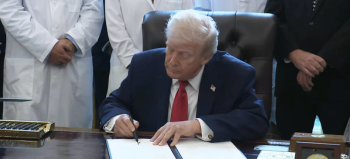NCAA Division I Council Vote to Remove Cannabinoids from Banned Drug Class Regarding Championships
The NCAA Division I Council recently voted to remove cannabinoids from their banned drug class for postseason football and NCAA championships.
On June 25, 2024, the National Collegiate Athletics Association (NCAA) Division I Council met and voted to remove cannabinoids from the banded drug class involving NCAA championships and postseason football. This ruling was set to go into effect immediately (1).
Previous NCAA policy stated that (2), “cannabinoids are one of five substances tested for ahead of championships and postseason football games. The NCAA also tests for beta-2 agonists, beta blockers (in rifle), stimulants and narcotics ahead of those events.” If an athlete tests positive for cannabis, it could lead to them receiving a suspension. During the season, schools maintain their own drug testing standards, while the NCAA managed drug testing during the postseason. If a positive test result shows up on a test conducted by the NCAA, a harsher penalty is usually handed down than what the school would have enacted (1).
“The NCAA drug testing program is intended to focus on integrity of competition, and cannabis products do not provide a competitive advantage,” Josh Whitman, Council chair and Illinois athletic director, commented (1). “The council’s focus is on policies centered on student-athlete health and well-being rather than punishment for cannabis use.”
The New York Times reported that back in 2019 (1), three football players in Oklahoma received a six-game suspension because the student athletes had tested positive for cannabis prior to the Peach Bowl College Football Playoff (CFP) semifinal game. As a postseason game, the athletes’ suspensions were continued into the following 2020 season.
In a September 2023 NCAA press release (3),
This recommendation was offered after an extensive study informed by industry and subject matter experts. In December 2022, the NCAA also hosted a
With the NCAA Division I Council’s ruling, it will hopefully ignite future changes in sport regulations. The Pew Research Center reported that as of April 2024, 24 stated in the United States (US) have legalized recreational cannabis (5). Although the popularity of cannabis is growing, it still faces various roadblocks stalling it from being an accepted option for both athletes and recreational and medical consumers.
References
- Vannini, C. NCAA DI removes cannabinoids from banned drug class
https://www.nytimes.com/athletic/5591752/2024/06/25/ncaa-cannabinoids-banned-drugs-football/ (accessed Jun 28, 2024). - Schultz, N.; Samra, S. NCAA makes surprising decision on removing banned drug from list
https://www.on3.com/news/ncaa-division-i-council-vote-remove-cannabinoids-banned-drug-class-football-postseason-participation/ (accessed Jul 24, 2024). - Colli, M. NCAA committee recommends removal of cannabis from banned substances list
https://www.cannabissciencetech.com/view/ncaa-committee-recommends-removal-of-cannabis-from-banned-substances-list (accessed Jul 24, 2024). - Radford, C. Summit addresses impact of cannabinoids on student-athlete health, safety and performance, NCAA.org,
https://www.ncaa.org/news/2022/12/20/media-center-summit-addresses-impact-of-cannabinoids-on-student-athlete-health-safety-and-performance.aspx#:~:text=In%20February%202022%2C%20CSMAS%20adjusted,penalty%20str - Breen, K.; Johnston, T. Maps show states where weed is legal for recreational, medical use in 2024
https://www.cbsnews.com/news/legal-weed-map-states/ (accessed Jul 24, 2024).
Newsletter
Unlock the latest breakthroughs in cannabis science—subscribe now to get expert insights, research, and industry updates delivered to your inbox.





